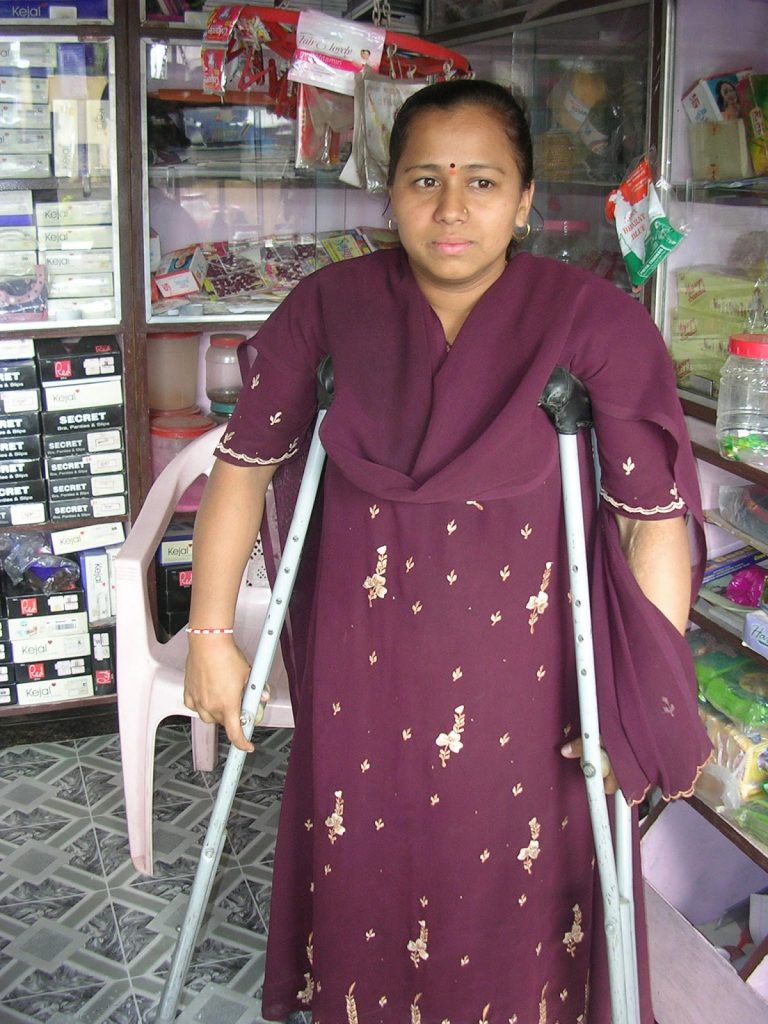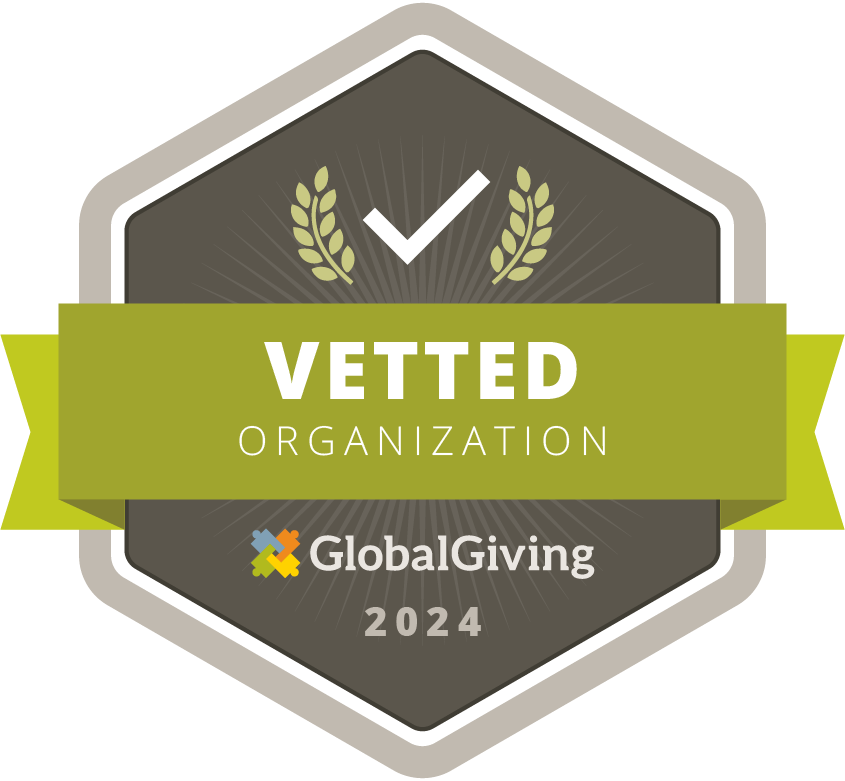
Shobha Ramchandra Raut doesn’t know how it feels to walk normally. Her right leg is paralyzed as a result of a bout with polio when she was 10 months old, and she requires crutches to get around. At the age of 28, this quiet and unassuming woman radiates an inner calm and confidence that belie a life of physical pain. Shobha did not always have this peace of mind. Uncomfortable with the stares of her peers in school, Shobha nonetheless threw herself into her studies with the knowledge that she would have to get a job and support herself because she was “unmarriageable.”
After completing the 12th grade, no small feat for any girl from the rural village of Mhaswad, Shobha decided to continue on to complete a Bachelor of Commerce degree. However, Mhaswad did not have the facilities, so she rode the public bus for over two hours every day to reach her school in the village of Dahiwadi, 27 km away. Although it was difficult and exhausting, she credits this experience of traveling alone and attending college with giving her the confidence so she could truly become self-reliant.
She explains, “With education you get a different confidence and communication skills because you go out on your own and communicate with so many people and that gives you confidence.”
After graduation, Shobha felt enormous pressure to get a job and approached the newly formed Mann Deshi Mahila Bank for a position. She was rejected because the field work requirements exceeded her physical capacity, and she eventually found a clerical job in a nearby city. She struggled living alone in a small rented room because grocery shopping, fetching water, and other household chores were extremely difficult for her. The low point came when she slipped on some tiles at work one morning and fell into a pot of boiling water, permanently scarring her left arm. For the first time in many years, Shobha realized she needed help.
After consulting with her parents, Shobha decided to move home and start a small grocery store. She again approached Mann Deshi and was readily given her first loan of 15,000 rupees ($375). Shobha’s communication skills and confidence from school stood her in good stead and her business quickly thrived. She paid off her first loan ahead of schedule and took a second one to expand her business into women’s wares, notebooks, and stationary.
The store is attached to Shobha’s home, allowing the petite woman to avoid a long commute and stairs. Shobha hangs her crutches in the corner of the shop and greets each customer with a quiet smile as she leans on the counter for support. After 8 years running the shop, Shobha is renowned for the high quality of her products and her friendly demeanor. The success of her shop has given Shobha the peace of mind the eluded her as a youth. She is determined to be self-sufficient because she knows she will have to take care of herself for the rest of her life.
Her parents have been supportive of her decisions and her father has pledged to leave his property in her name but she has refused any outright financial assistance for the last two years. She says, “I have more confidence in myself than in anyone else.” Rather than relying on others, Shobha looks to God for comfort and companionship. Shobha’s intimate relationship with religion began when she was 13. She had spent the previous year in acute pain, visiting numerous doctors who could not figure out how to help her. She began to despair and grew increasingly frustrated with her condition.
Her mother told her, “Your disability was decided by God and so you have to face it.” Something resonated with Shobha: “Now I know that if I have problems I can find the answers with God.”
Since then, she has not only used Hinduism to cultivate her peace of mind, but also has begun exercising by walking to the village temple each day. Shobha’s most extraordinary physical exploit was her decision to join a one hundred kilometer pilgrimage walk to a famous temple. She and her grandmother joined a group of pilgrims and Shobha walked for 10 days through extreme pain to reach her goal.
Surprisingly, this is not what she cites as her greatest accomplishment; instead, Shobha’s proudest moment came when she decided to pay for her younger brother’s college education. Her father
could not afford the computer science fees or a computer, and Shobha decided that she would take another loan from Mann Deshi to ensure that he could continue with his education. She says, she did this for him because “none of my cousins have been educated and got into bad habits of drinking and I didn’t want my brother to become like that.” But she also did it for herself. As soon as her brother finishes school, Shobha intends to start saving money for her own future.
With not an ounce of self pity she declares, “I can do something and someone can rely on me and I can fulfill what I told them. That is my proudest moment. My disability gave me the opportunity for independence. It has motivated me to be self reliant.”









